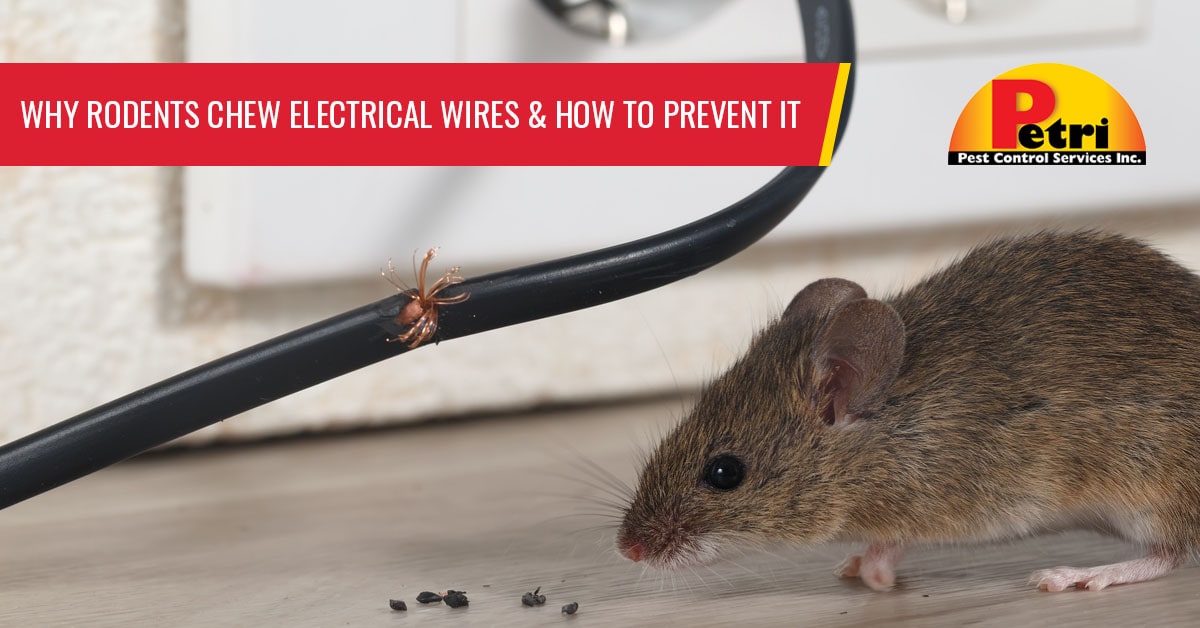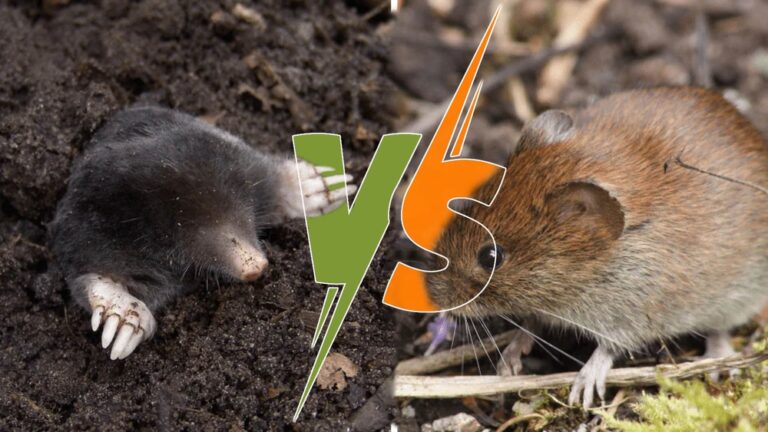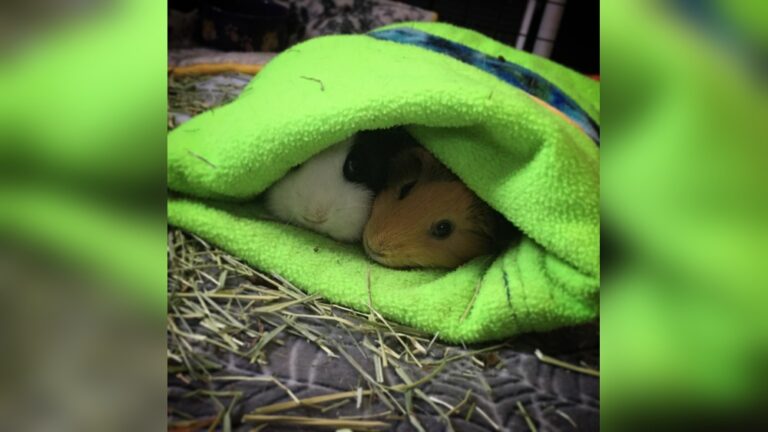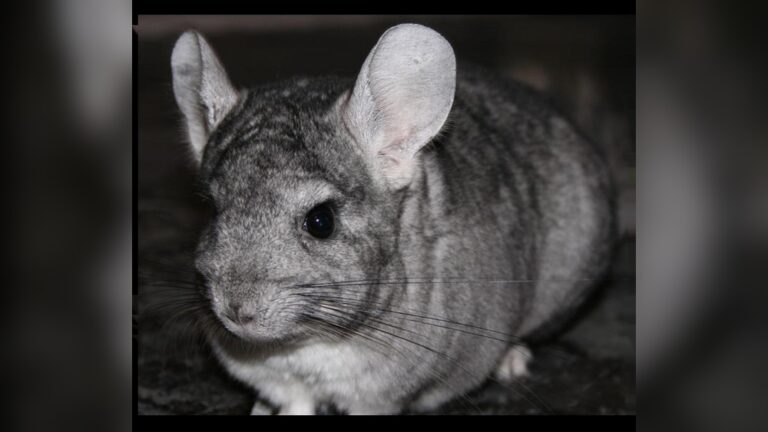Why Do Rodents Gnaw On Wires: Shocking Reasons Revealed
Have you ever found yourself puzzled by chewed-up wires around your home or office? You’re not alone.
Rodents gnawing on wires is more than just an annoying problem—it can lead to serious damage and even safety hazards. But why do these small creatures focus so much on your electrical cords? Understanding their behavior can help you protect your space and avoid costly repairs.
Keep reading to discover the surprising reasons behind this destructive habit and what you can do to stop it before it’s too late.
Rodent Gnawing Behavior
Rodents have a strong habit of gnawing on objects, especially wires. This behavior might seem strange or annoying. It is actually a natural part of how rodents live and survive. Understanding why rodents gnaw helps us protect our homes and devices better.
Rodent gnawing is not just random. It comes from deep instincts and physical needs. Their chewing can cause serious damage to electrical wiring, leading to safety risks. Knowing the reasons behind this behavior can guide us in preventing it.
Natural Instincts
Rodents chew to keep themselves safe. Their instinct tells them to explore and mark territory. Gnawing helps them find food and create nests. This behavior is part of how they survive in the wild and urban areas.
Teeth Growth And Maintenance
Rodents’ teeth grow continuously. They need to gnaw to stop their teeth from becoming too long. Chewing on hard objects like wires helps wear down their teeth. This prevents pain and allows them to eat properly.
Exploring Their Environment
Rodents use their teeth to explore new areas. They bite objects to test if they can chew through them. This helps them find safe paths and hidden places. Wires inside walls often become targets during this exploration.

Credit: www.familyhandyman.com
Attraction To Wires
Rodents often gnaw on wires for several reasons tied to their natural behavior and survival needs. Wires provide an attractive target for these animals due to their texture, scent, and warmth. Understanding why rodents are drawn to wires helps in preventing damage and keeping homes safe.
Texture And Material Appeal
Rodents have strong teeth that grow constantly. They need to chew to keep them short and sharp. Wires, especially those coated in plastic, offer the perfect texture to gnaw on. The smooth yet firm surface feels good against their teeth. This makes wires a favorite choice compared to rough wood or hard metal.
Scent And Taste Factors
Wires may carry scents that attract rodents. They can smell food crumbs or grease left on cables. The taste of some plastic coatings can also interest them. This makes wires more appealing than plain objects. Rodents use their sense of smell to explore and decide what to chew.
Warmth And Vibration
Electrical wires generate slight warmth from the current. Rodents are drawn to warm spots, especially in cold weather. The small vibrations from electricity can also attract them. These signals tell rodents that wires are alive, making them curious to explore and chew.
Consequences Of Wire Gnawing
Rodents gnawing on wires can cause serious problems. The damage is not just about chewed cables. It affects safety and property too. Understanding the consequences helps in taking action fast.
Electrical Hazards
Rodents chew wires and expose metal inside. This can cause electrical shorts. Shorts may start fires or damage devices. Exposed wires can also shock people. This risk grows if wires carry high voltage.
Damage To Property
Chewed wires often stop working properly. This leads to costly repairs or replacements. Damaged wires can cause appliances to fail. Rodent damage may affect walls and floors too. Repairing these adds to the overall cost.
Risks To Human Safety
Exposed wires can shock anyone touching them. Electrical fires caused by gnawed wires threaten homes. Smoke and fire damage endanger lives and health. Families can face serious injuries from these accidents. Preventing rodent damage protects everyone’s safety.
Credit: goodlifeinc.com
Preventing Rodent Wire Damage
Rodents chewing on wires cause serious problems. They can damage electrical systems, leading to power outages or fires. Preventing this damage helps keep homes and devices safe. Taking steps to stop rodents from reaching wires is important for safety and cost savings.
Physical Barriers
Use metal or plastic covers to protect wires. Rodents cannot chew through these materials easily. Seal holes and gaps in walls or floors to block rodent entry. Secure cables inside conduits or tubing for extra protection. These barriers create tough obstacles rodents avoid.
Repellents And Deterrents
Spray rodent repellents near wires and entry points. Natural scents like peppermint or garlic repel rodents. Ultrasonic devices emit sounds that rodents dislike. Place traps or sticky pads to catch rodents early. These methods discourage rodents from coming close.
Maintaining Cleanliness
Keep areas free of food crumbs and garbage. Store food in sealed containers to avoid attracting rodents. Remove clutter where rodents hide or nest. Clean regularly to spot early signs of rodent activity. A clean space makes rodents less likely to stay.
Rodent Control Strategies
Rodents gnaw on wires for many reasons. Their teeth grow constantly. Chewing helps keep teeth short and sharp. This behavior can cause serious damage. Wire gnawing can lead to electrical fires and power outages. Controlling rodents is important for safety and comfort.
Effective rodent control uses different methods. Combining approaches works best. Below are common strategies to reduce rodent problems and protect wires.
Trapping Techniques
Traps catch rodents without poison. Snap traps kill quickly and work well. Place traps near walls and wires. Use bait like peanut butter or seeds. Check traps daily to remove rodents. Avoid placing traps where pets can reach.
Professional Pest Services
Experts find rodent entry points fast. They use tools and knowledge to remove rodents. Professionals offer safe and effective treatments. Services include inspection, trapping, and cleanup. Regular visits help keep rodents away.
Long-term Prevention Tips
Seal holes and gaps in walls and floors. Store food in airtight containers. Keep areas clean and free of crumbs. Remove clutter that hides rodents. Use rodent-resistant materials for wiring. Maintain yards by trimming bushes and removing debris.

Credit: www.petrispestcontrol.com
How Smart Pets Lover Can Help You with Why Do Rodents Gnaw On Wires
Turning Rodent Wire Gnawing Into a Learning Moment
Understanding why rodents gnaw on wires opens up practical learning opportunities that go beyond just prevention. When we explore rodent gnawing behavior and the attraction to wires, we gain insight into their natural instincts and needs. This knowledge can help pet parents and animal lovers alike create safer environments—not only for their furry friends but also for their homes.
For example, recognizing the consequences of wire gnawing encourages proactive rodent control strategies. This might involve educating children about the importance of keeping cords out of reach or using protective coverings to prevent damage. As a community passionate about pets, Smart Pets Lover encourages embracing these moments as chances to deepen our understanding of animal behavior and responsibility.
If you’re curious or concerned about rodent activity around your home, reaching out to local wildlife experts or pest control professionals can provide tailored advice. After all, every wag, purr, and chirp tells a story—and so does every thoughtful step we take to protect our shared spaces.
Frequently Asked Questions
Why Do Rodents Chew On Electrical Wires?
Rodents chew wires to wear down their constantly growing teeth. This behavior helps keep their teeth sharp and prevents overgrowth. Unfortunately, it can cause electrical shorts and fires, making it a serious hazard in homes and buildings.
How Can Gnawing Damage Electrical Wiring?
Gnawing can strip insulation from wires, exposing live electrical parts. This exposure may cause short circuits, power outages, or even fire hazards. Damaged wiring also requires costly repairs and creates dangerous living conditions.
What Attracts Rodents To Wires In Homes?
Rodents are attracted to the warmth and enclosed spaces around electrical wiring. The wires often run through walls and ceilings, providing safe paths for rodents. The insulation material may also seem like a tempting nesting material.
How To Prevent Rodents From Gnawing Wires?
Seal entry points and remove food sources to deter rodents. Use rodent-proof materials like metal conduit to protect wires. Regular inspections and traps can help control rodent populations before damage occurs.
Conclusion
Rodents gnaw on wires to keep their teeth sharp and short. This behavior can cause serious damage to homes and devices. Protect your property by sealing entry points and using rodent deterrents. Regular checks help spot early signs of chewing damage.
Understanding why rodents chew wires helps prevent costly repairs. Stay alert and take action to keep wires safe. Simple steps can stop rodents from causing harm. Keep your home secure and your wires intact.





